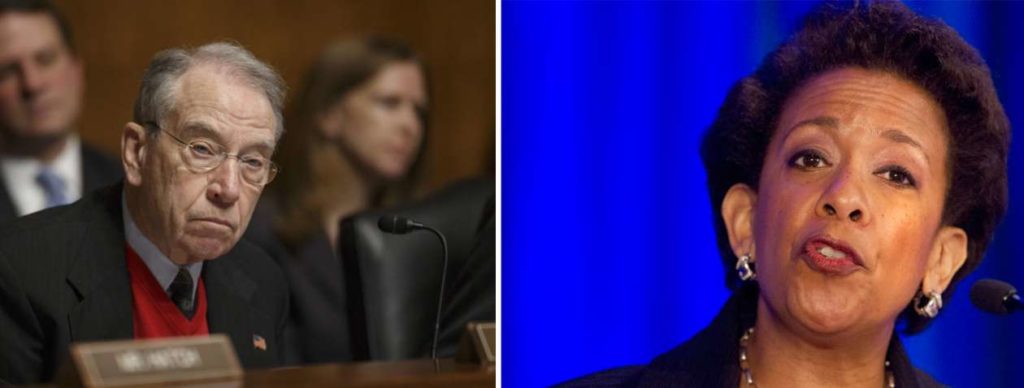2015 05 19 CEG to CMS (Risk Scores) (PDF)
2015 05 19 CEG to CMS (Risk Scores) (Text)
Grassley cited the Center for Public Integrity’s investigative reporting , which found that CMS made more than $70 billion what the agency itself deemed “improper” payments to Medicare Advantage plans between 2008 and 2013.
The concerns revolve around the accuracy of a billing tool called a “risk score,” which is supposed to pay insurers higher rates for taking sicker people and less for those with few medical needs.
But federal officials have struggled for years to track overspending tied to inflated risk scores. A 2009 agency study found that some plans had exaggerated how sick patients were to boost their payments, for instance. CMS also has acknowledged that faulty risk scores remain a costly problem, as the Center for Public Integrity first reported last year.
“With the reported increase in risk score gaming, and the monumental cost that the taxpayer will shoulder for such wrongdoing, it is imperative that CMS implement safeguards to reduce risk score fraud, waste and abuse. Moreover, if the reports of abuse are true, CMS should increase its auditing practices,” Grassley wrote.
Neither CMS nor the Justice Department had any immediate comment on the letter.
Grassley also cited a 2015 report by the Government Accountability Office , the watchdog arm of Congress, that found CMS “could save billions of dollars by improving the accuracy of its payments to Medicare Advantage programs.” The watchdog noted that CMS had estimated “improper payments” to Medicare Advantage plans at more than $12 billion in 2014 alone.
Grassley additionally referenced Center for Public Integrity reports on “an increasing number” of whistleblower lawsuits targeting Medicare Advantage. The suits argue that some insurance companies that offer Medicare Advantage “are allegedly engaging in billing abuse by altering patient records in order to claim patients are sicker than they actually are….News reports indicate that some insurance companies are wrongfully claiming sicker patients, leading to inflated risk scores and reimbursements,” Grassley wrote.
Medicare Advantage often resonates with many seniors because of its low out-of-pocket costs. It’s also winning favor with some health policy wonks who argue these managed care plans can offer higher quality care than standard Medicare, which pays doctors and hospitals on a “fee-for-service” basis.
Medicare Advantage plans also have proven to be a formidable lobbying force in Washington able to repeatedly beat back any efforts by the government to cut payment rates, most recently in April.
At the time, Karen Ignagni, the chief executive officer of America’s Health Insurance Plans, the industry’s trade group, noted: “Millions of seniors across the country have made their voices heard in Washington, and more than 340 members of Congress have stood in support of Medicare Advantage.”
But the whistleblower cases and government audits suggest that it’s far too easy for health plans to gouge the government.
Grassley asked Lynch for a “detailed explanation” of what steps the Justice Department “has taken, and is currently taking, to ensure that insurance companies are not fraudulently altering” risk scores.
Government investigations of Medicare Advantage plans rarely spill out into public view. One exception was a 2009 Justice Department lawsuit against the owners of America’s Health Choice Medical Plans Inc. in Vero Beach, Florida. The government accused the health plan of bilking Medicare out of millions of dollars by reporting “as many diagnosis codes as possible without regard to their truthfulness.”
The health plan denied the accusations. The case was settled in 2010 when the plan’s owners agreed to pay the government $22.6 million. The HMO is defunct.
At least one other Justice Department probe into whether exaggerated risk scores are jacking up costs, is believed to be widening.
Humana Inc., based in Louisville, Kentucky, which counts more than 3 million seniors in its plans, wrote in a March Securities and Exchange Commission filing that “a number of Medicare Advantage plans, providers and vendors” have come under scrutiny.
On April 14, DaVita Healthcare Partners Inc., headquartered in Denver disclosed that Justice Department investigators had subpoenaed Medicare Advantage billing data and other records from January 2008 through the end of 2013.
Grassley asked both Justice and CMS to tell him how many risk score fraud investigations had been conducted over the past five years and their outcome. He asked for a reply no later than June 3, 2015.
Grassley also wanted to know how many risk score audits CMS has conducted, how much money was recovered and how much CMS spends attempting to collect overpayments.
This story was co-published with NPR.


Join the conversation
Show Comments